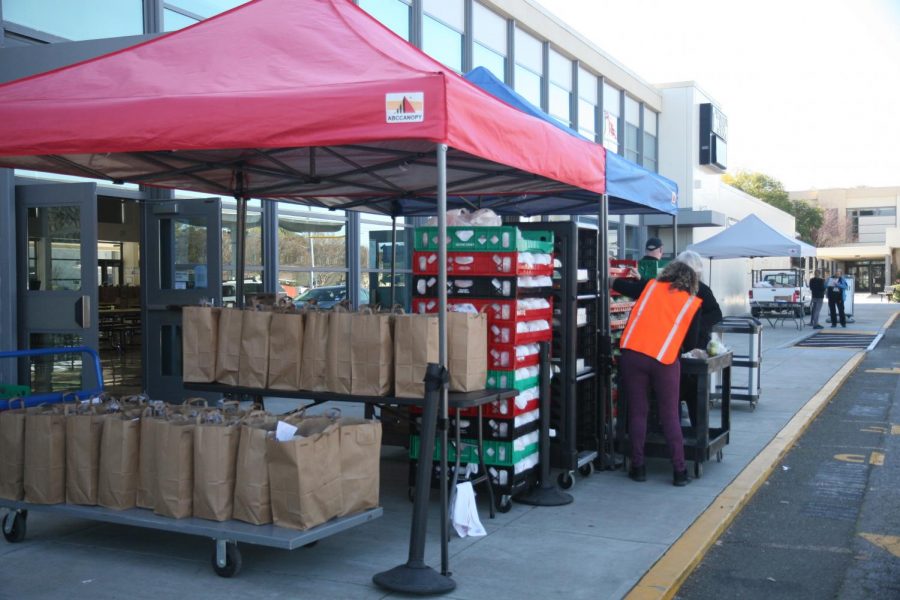CAMPUS: SCUSD continues to distribute free meals to those in need during COVID-19 pandemic
Free meals are safely distributed at any SCUSD campus.
Back in March of 2020, SCUSD implemented a district food distribution program to help provide free meals to families in need of financial assistance during the COVID-19 pandemic.
According to Director of Nutrition Services, Karen Luna, this year’s program is an extension of a previously created program that provided free meals to students during the year. It has been expanded during the pandemic and now provides meals for anyone in the community who qualifies. Community members can find additional information regarding food distribution and other support services through the Family Resource Center section of SCUSD website.
Meals can safely and efficiently be picked up at any school in the district. Once a week, seven homemade breakfasts and lunches are safely packaged and given to families contact-free.
“We’d (food distribution volunteers) group up, wash our hands, put masks on, hairnets and we would put together the boxes, and we would put the food into trunks of people’s cars,” sophomore food distribution volunteer Eryn Gandotra said.
All meals are homemade and range from lasagna to spicy chicken patties and even Pop-Tarts.
“We try and give as much of a variety as we can,” Luna said.
Along with being homemade, many meals contain fresh produce grown on the district’s farms.
“We have given 40,000 pounds of produce organically grown from the district farms right here in Sunnyvale,” Luna said.
In addition to providing food for students, the program became an opportunity for community service, allowing volunteers to see firsthand the food distribution’s impact.
“It was an eye-opening experience for me. I think a lot of people have preconceived notions about what the meal distribution is and, in particular, who goes to them, which are not always true,” sophomore food distribution volunteer Raina Liem said. “There are families who simply have multiple members in their household, and the meal distribution is a reassurance to them, whether they go or not.”
Student volunteers were able to partake in something that they believed was important and give back to their community.
“Nobody is required to do it (food distribution). It’s just something that people could find useful,” Gandotra said. “I really appreciate it, especially because it’s a part of our community and it’s really close to us and it’s just accessible to anybody.”
According to principal Gregory Shelby, the program will continue should SCHS go into hybrid learning. Drive-in pickup will continue on Mondays when it is an online-learning day, where students will receive a week’s worth of meals. At the end of in-school learning days, breakfasts for the next day will be handed out to students, no matter the financial situation, in order for the process to proceed as quickly as possible. To minimize risk as much as possible, on in-school learning days, the school day will end before lunch for most students.
“We are really trying to do things to not have students take off their mask, so we don’t want students to eat on campus,” Shelby said. “The one exception will be students … who are on campus who have a seventh period on the two days a week when it will be lunch and then seventh.”
The district’s decision to provide free food is a way for them to aid students and their families in hopes of giving them one less thing to worry about during the pandemic.
“We’re always looking for ways to serve our students, particularly students that don’t have access to enough resources,” Shelby said.
The district food distribution program has helped provide over 2 million meals, according to Luna, and will continue to provide to families in need of a little assistance.
“For those who are struggling, it can help ease their troubles, even if just for a meal, and for those who may not be struggling as much, they have the reassurance that they would still be able to have things to eat should anything go wrong,” Liem said.


